5 Expert Insights on How AI is Transforming Sales
Artificial intelligence is changing the way sales work, and it’s happening faster than most of us could’ve imagined even a decade ago. It brings opportunities, sure—but there are challenges too. One big question that keeps coming up is: will AI replace salespeople, or will it make them even better at connecting with customers and closing deals? To get to the bottom of this, we found some industry leaders and experts to see what they think.
How AI is Changing Sales Roles
AI is already shifting how salespeople approach their jobs. Emma McGuigan, Senior Managing Director & Lead of Enterprise & Technology, Accenture, points out why adapting to AI is so important:
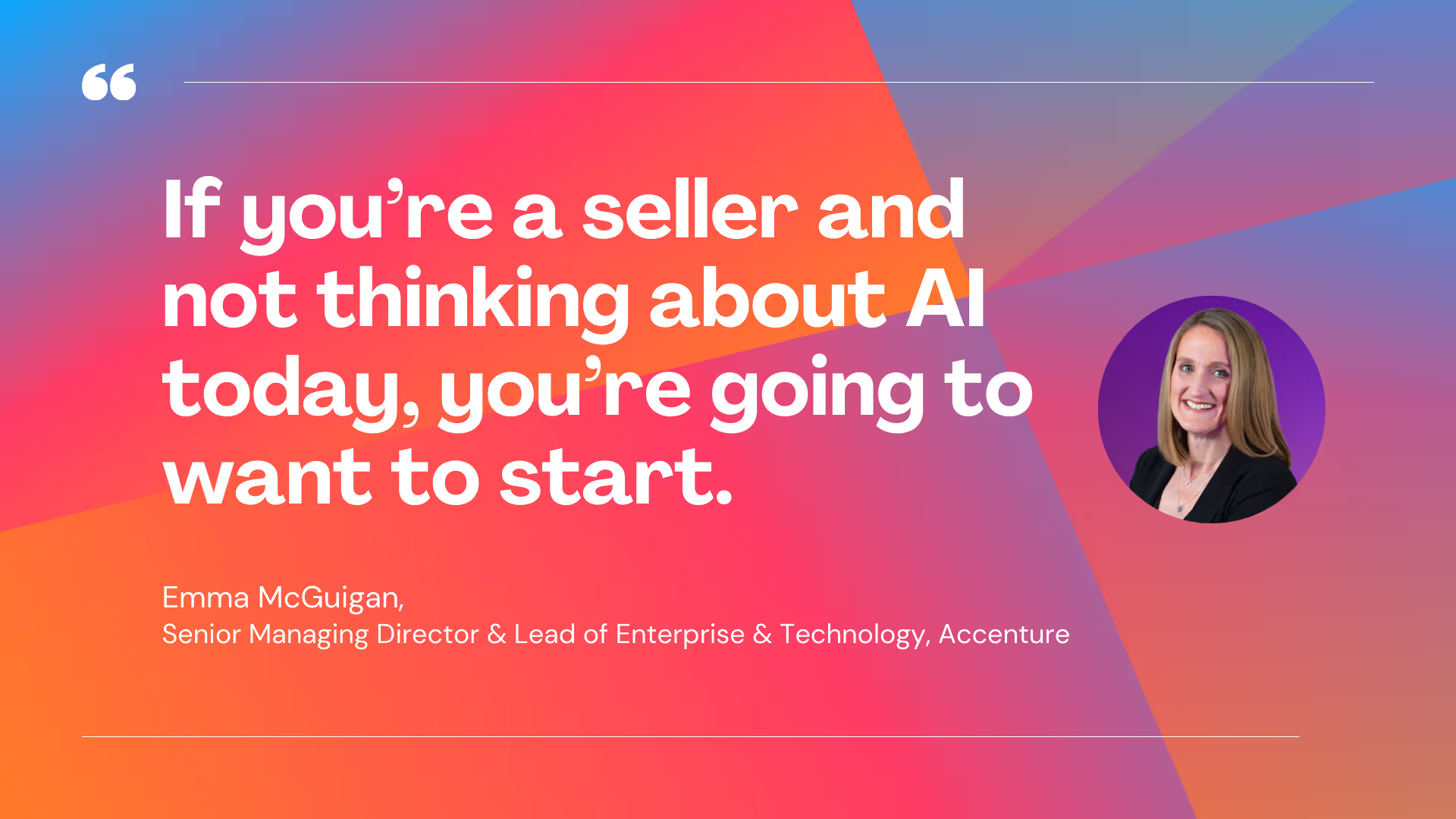
AI isn't just automating the mundane tasks like data entry or scheduling; it's also changing how salespeople strategize, prospect, and engage with clients. By analyzing customer data more effectively, AI tools can help sales teams identify key opportunities, predict customer behavior, and personalize outreach in ways that simply weren't possible before. Instead of spending hours combing through data, sales reps can focus on having meaningful conversations and solving real problems for their clients.
Balancing AI and Human Connection
AI tools are becoming a big part of the sales toolkit, but it’s still critical not to lose the human touch that makes relationships work. Barney Brown, Global Head of Sales Enablement, Amazon Web Services, says:
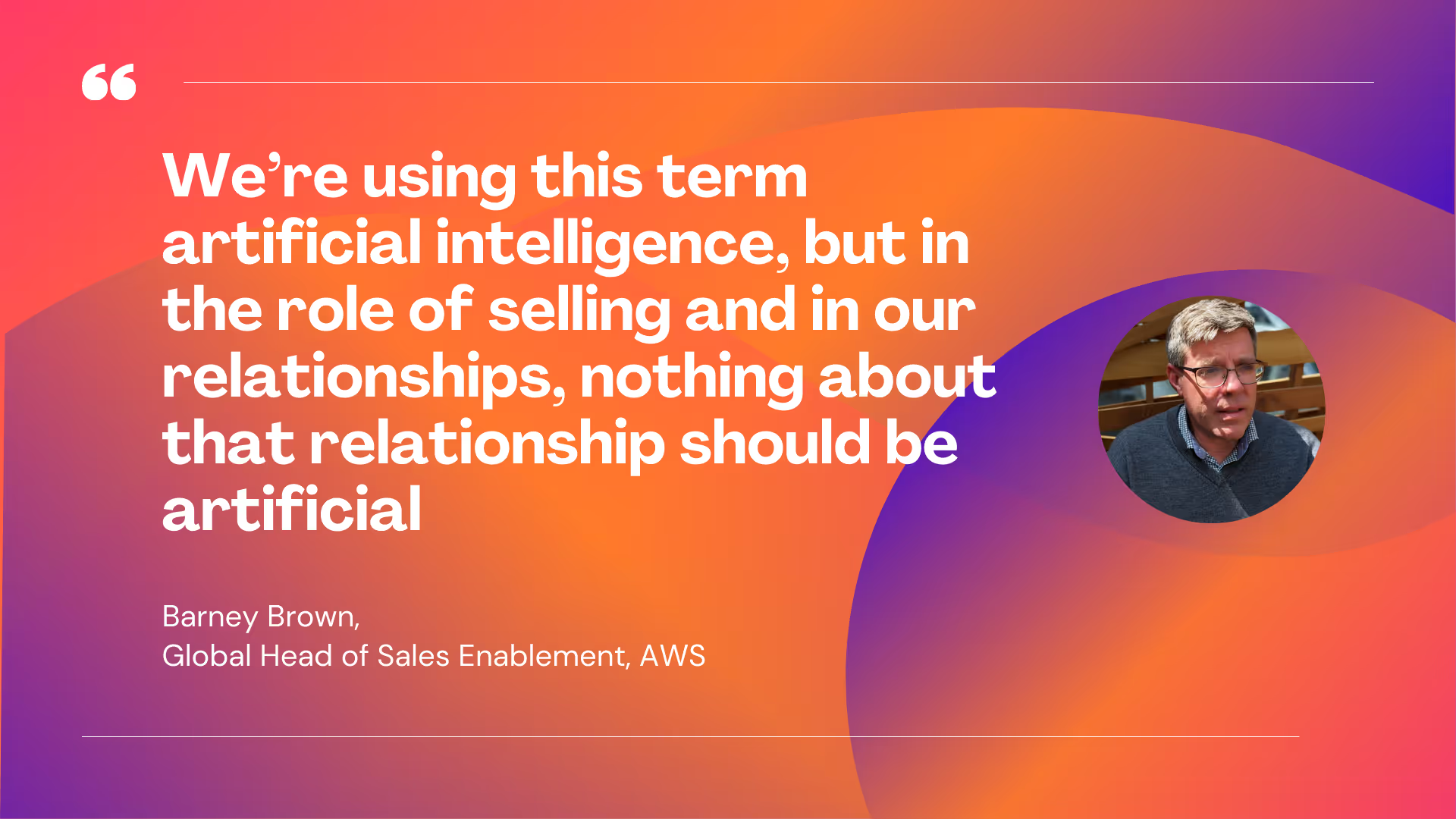
One of the key concerns with the adoption of AI is the risk of losing the human element that is so vital in sales. Building trust, empathizing with client needs, and fostering long-term relationships cannot be automated. AI might be able to provide data and insights, but it’s the human connection that seals the deal. Sales professionals need to strike a balance, using AI to augment their abilities without sacrificing the authentic touch that makes them effective.
AI: A Force for Good or a Spam Machine?
AI is powerful, but how we use it makes all the difference. Matt Dixon, founder of DCM Insights, warns:
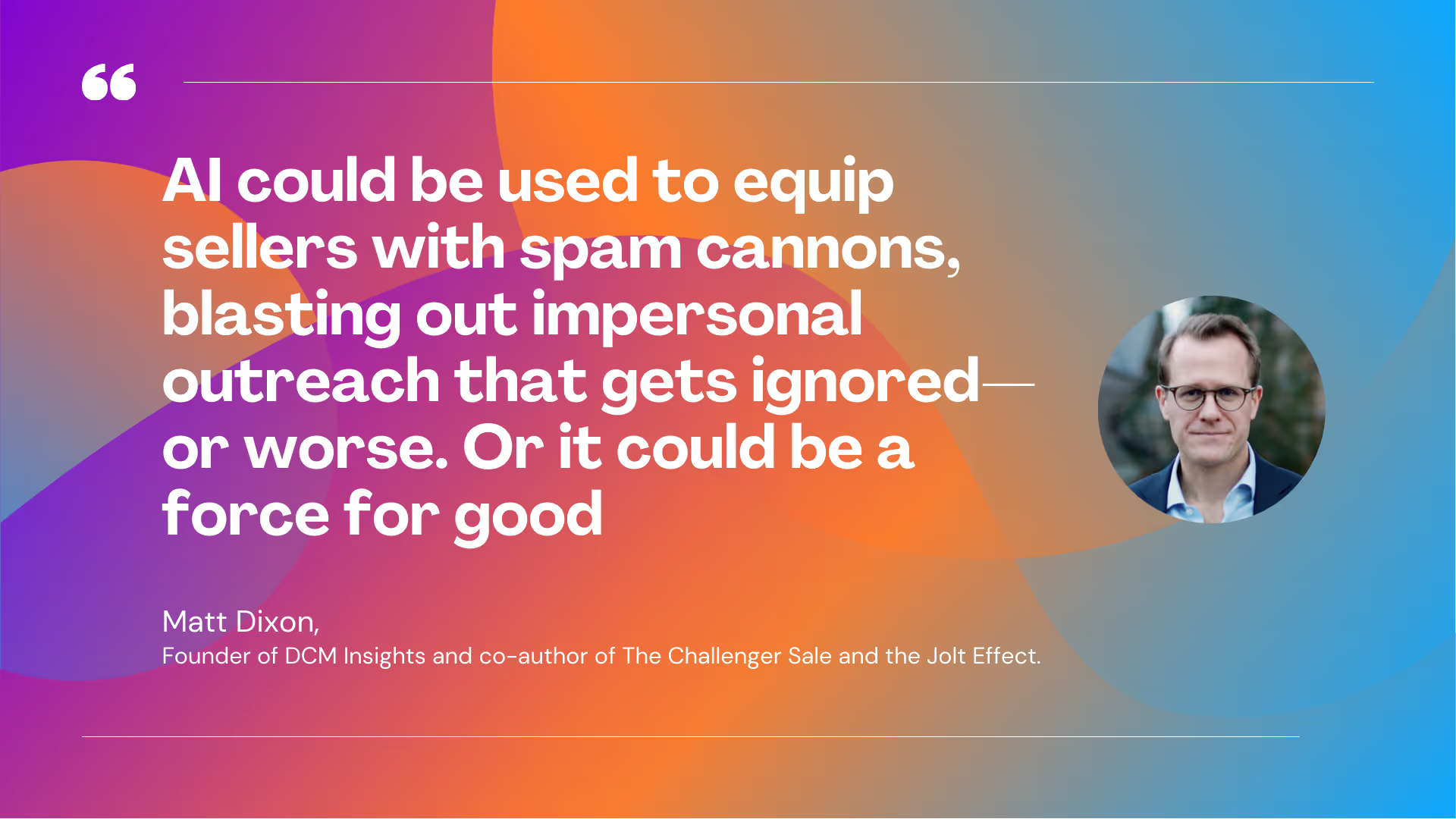
The line between effective automation and impersonal spam is a thin one. AI can be used to create personalized emails, but if overused or improperly managed, it risks turning into mass, meaningless outreach that fails to resonate with customers. The key to using AI effectively is to ensure that the personalization is real—that it’s based on genuine insights about the prospect, and not just filling in names in a template.
The Human Factor: A Competitive Advantage
No matter how advanced AI gets, there’s one thing it can’t replace—genuine human empathy and creativity. Aneesh Raman, Vice President Head of the Opportunity Project, LinkedIn reminds us:
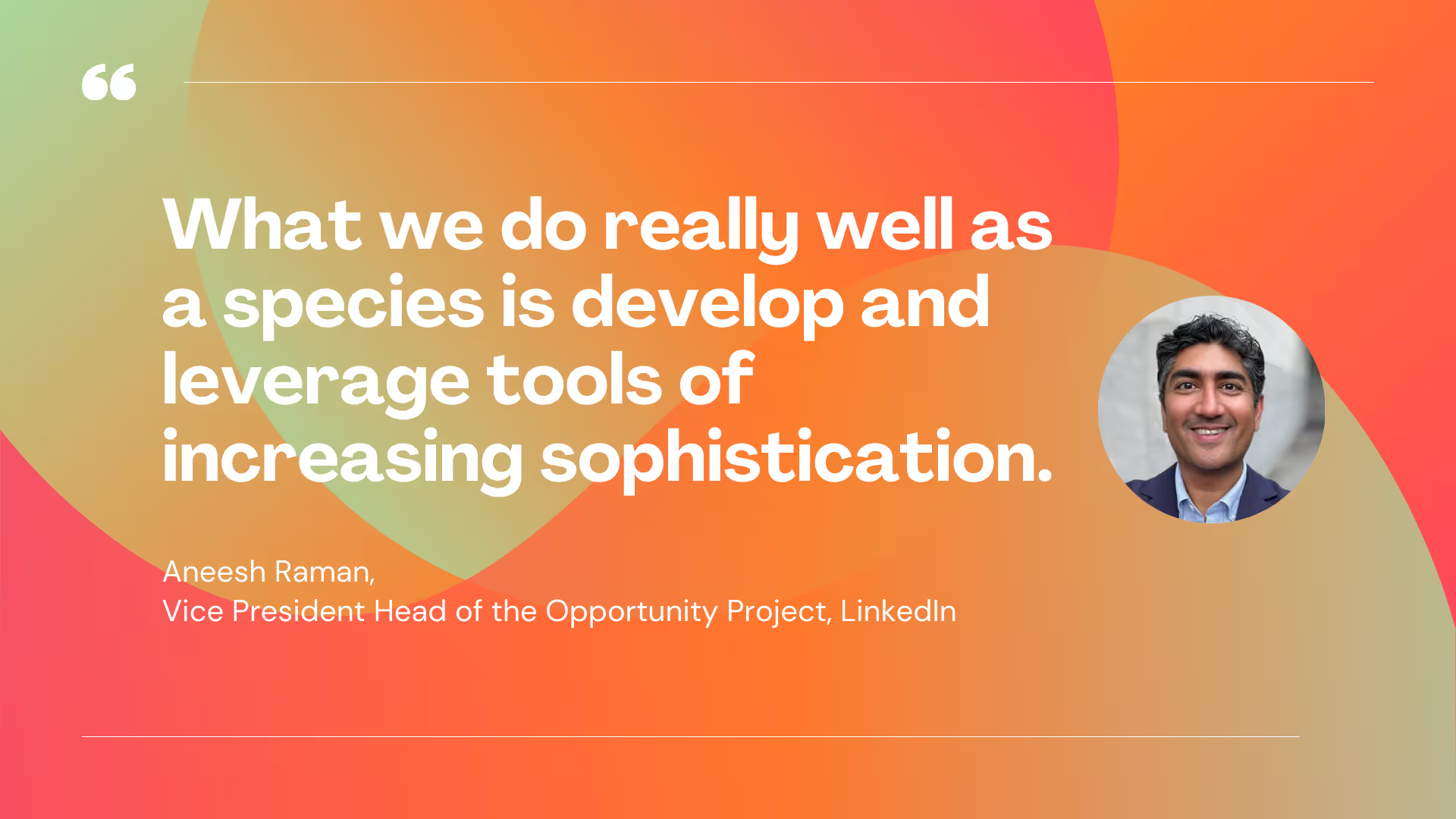
Empathy, intuition, and creativity are qualities that AI simply cannot replicate. Customers want to feel heard, understood, and valued, and that’s something that only a human can deliver. While AI can provide data-driven insights and help streamline processes, it lacks the emotional intelligence needed to truly connect with another person. This is why the human factor will always be a competitive advantage in sales.
Embracing the Future of Sales
So, what’s the bottom line? AI is here, and it’s going to change sales—but it’s not taking away the human element. As Dan Shapero, Chief Operating Officer, LinkedIn says:
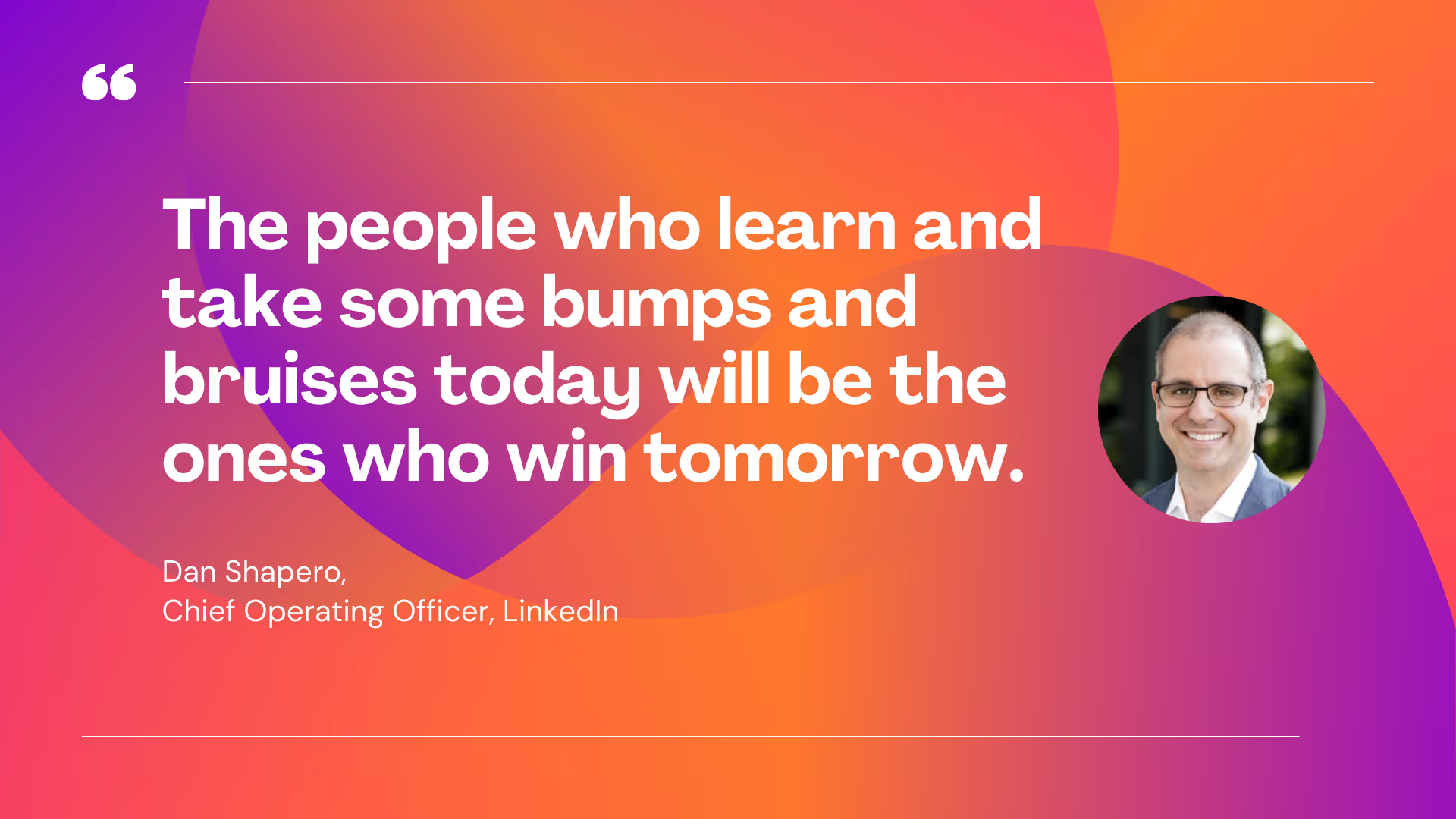
AI is a powerful tool, but we have to be thoughtful about how we use it. The future of AI in sales isn’t about doing less—it’s about doing more of what matters most.


%201.svg)


.avif)
.avif)
.avif)
.avif)










